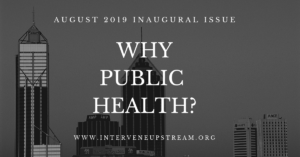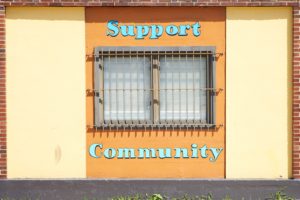A Shift in Perspective
If someone asked me what I felt hopeful about two years ago, it would have been a difficult question for me to answer. Now, the answer is simple. I feel hope that, through the pursuit of health equity, public health can improve the lives of all people. This admittedly sounds a bit starry-eyed; however, it is imperative to hold on to hopeful ideas in an increasingly uncertain world of dark news and a divided populace.
In moments of weakness, optimism gives way to a tiring fight against ambivalence towards injustice, which is sometimes made easier to slip into by my white, middle-class bubble of blue city privilege. When an arsonist attempted to set fire to our local Planned Parenthood in Columbia, Missouri, I was shocked and outraged along with the rest of my community. Nevertheless, if the fire had caught, my job would still provide me with uninterrupted and affordable access to reproductive care.
Although I strongly disagree with my local Congresswoman’s voting record, my liberal city government and university provide a political buffer that I can disappear into when I feel fatigued. In this way, my privilege provides an insidious blanket that can cover the anxiety, discontent and anger I feel at the vast amount of injustice in the world. In contrast, public health highlights the power of communities to work together to improve the quality of life for entire populations. This is all the more reason to seize the energy that our field encourages.
It took me a long time to find public health. My academic background is in psychology and neuroscience, fields closer to clinical science than public health policy. This interest led me to an engaging job in a rehabilitation research lab, where I still work. Our projects investigate the long-term neurological changes that result from injuries to the nervous system, particularly limb amputation. One of my favorite parts of my job is having the opportunity to speak to a diverse range of people who have adapted to life without a limb. This absence rarely slows people down, even in the face of chronic pain that often accompanies limb loss. Our research volunteers generously donate their time to advance scientific knowledge, often without direct benefit to themselves.
Getting to know this population made me want to shift my work to a path that could more directly contribute to positive health changes. Although basic science is the foundation for the advancement of any academic discipline, I craved work that would involve connecting with communities. One night, this desire led me to a long list of graduate degrees. As I scrolled through, I wondered if this unceremonious method was the wrong way to find what I was looking for. Then I stumbled onto public health: I connected the dots between my habit of following disease outbreak news, my interest in local politics and my background in psychology and neuroscience. Public health seamlessly combined previously unrelated passions. This moment of clarity pointed me in the right direction.

Early Experiences in Progress
Early in my Master of Public Health program, I had the good fortune of contributing to research that directly impacts the quality of life for individuals and communities – the best kind of work in our field. Enabling even small changes within localities often has the encouraging effect of translating to broader political and policy changes at structural levels by providing evidence that investing in programs, infrastructure, and communication techniques is well worth the cost. I am especially encouraged by the potential power of health communication to ensure that vital health information is available to everyone who needs it. This is particularly relevant in the age of widespread and nearly instantaneous access to information via the internet. A salient example is the crucial need to understand and respond to the concerns of the recent anti-vaccination movement. While it has become trendy to mock “anti-vaxxers” – a quick Google search will reveal pages of memes – strategic health communication can redirect this public ire into a deeper understanding of health misconceptions informed by cultural context and community connections.
Health communication also encourages a deeper understanding of culture and community. For example, the first educational campaign posters that introduced sanitary control measures in response to the 2014 – 2016 Ebola virus disease outbreak in West Africa had unintended negative consequences. These initial messages emphasized that Ebola is severe and often incurable. This sparked fear of, and resistance to, treatment in at-risk populations. 1 Community connectedness inspired this understandable reaction. Families would rather stay at home to care for one another than face an isolated death in an unfamiliar, sterile treatment center.1 After epidemic control attempts were modified to fit cultural contexts, health communication attempts were better received. Dedication to constant improvement and increased local involvement helped educational campaigns evolve to meet the needs of at-risk communities during the outbreak.
It is often easy to become overwhelmed by the seemingly endless health challenges we face. However, now that I am working alongside people who share the common goal of improving health at a population level, I am certain I’ve found the right path. I believe that many people drawn to public health are hands-on, engaged folks – individuals who need to feel hopeful on a daily basis. My experiences in public health have reflected this satisfying method of work: even one small change every day is progress. As a fellow reader of Intervene Upstream, I am hopeful that you feel a similar passion for the potential we hold as practitioners of public health to create positive changes, both large and small, in the world that improve the health of all people.





Pingback: Introducing Intervene Upstream: 2019 Inaugural Release » Intervene Upstream, the online peer-reviewed public health publication for graduate students